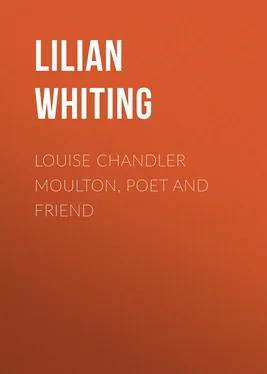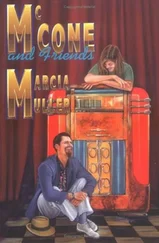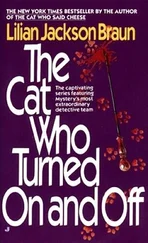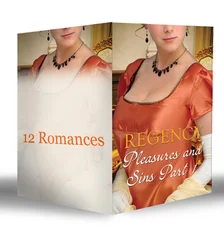Lilian Whiting - Louise Chandler Moulton, Poet and Friend
Здесь есть возможность читать онлайн «Lilian Whiting - Louise Chandler Moulton, Poet and Friend» — ознакомительный отрывок электронной книги совершенно бесплатно, а после прочтения отрывка купить полную версию. В некоторых случаях можно слушать аудио, скачать через торрент в формате fb2 и присутствует краткое содержание. Жанр: Биографии и Мемуары, foreign_antique, на английском языке. Описание произведения, (предисловие) а так же отзывы посетителей доступны на портале библиотеки ЛибКат.
- Название:Louise Chandler Moulton, Poet and Friend
- Автор:
- Жанр:
- Год:неизвестен
- ISBN:нет данных
- Рейтинг книги:4 / 5. Голосов: 1
-
Избранное:Добавить в избранное
- Отзывы:
-
Ваша оценка:
- 80
- 1
- 2
- 3
- 4
- 5
Louise Chandler Moulton, Poet and Friend: краткое содержание, описание и аннотация
Предлагаем к чтению аннотацию, описание, краткое содержание или предисловие (зависит от того, что написал сам автор книги «Louise Chandler Moulton, Poet and Friend»). Если вы не нашли необходимую информацию о книге — напишите в комментариях, мы постараемся отыскать её.
Louise Chandler Moulton, Poet and Friend — читать онлайн ознакомительный отрывок
Ниже представлен текст книги, разбитый по страницам. Система сохранения места последней прочитанной страницы, позволяет с удобством читать онлайн бесплатно книгу «Louise Chandler Moulton, Poet and Friend», без необходимости каждый раз заново искать на чём Вы остановились. Поставьте закладку, и сможете в любой момент перейти на страницу, на которой закончили чтение.
Интервал:
Закладка:
Ah! the bewildering thread!
The tapestries of Paradise
So notelessly are made.
CHAPTER III
1860-1876
But poets should
Exert a double vision; should have eyes
To see near things as comprehensively
As if afar they took their point of sight;
And distant things as intimately deep
As if they touched them....
I do distrust the poet who discerns
No character or glory in his time.
Mrs. Browning.— Aurora Leigh.
… there are divine things, well envelop'd;
I swear to you, there are divine things more beautiful than
words can tell.—Walt Whitman, Song of the Open Road .
The morning skies were all aflame.—L.C.M.
POETRY with Mrs. Moulton was a serious art and an object of earnest pursuit. It was not for mere pastime that she had steeped herself, so to speak, in
… The old melodious lays
Which softly melt the ages through;
The songs of Spenser's golden days,
Arcadian Sidney's silver phrase;
for in her poetic work she recorded her deepest convictions and her most intimate perceptions of the facts of life. To her life was love; its essence was made up of the charm of noble and sincere friendships, of happy social intercourse, of sympathetic devotion. To this joy of love and friendship, there was in her mind opposed one sorrow—death, and not all the assurances of faith or philosophy could eliminate this dread, this all-pervading fear, that haunted her thoughts. In some way the sadness of death, as a parting, had been stamped on her impressionable nature, and it inevitably colored her outlook and made itself a controlling factor in her character. It took the form, however, of deepening her tenderness for every human relation and widening her charity for all human imperfection. The vision of
Cold hands folded over a still heart,
touched her as it did Whittier, with the pity of humanity's common sorrow, and with him she could have said that such vision
Swept all my pride away, and trembling I forgave.
Writing in later years of Stephen Phillips she said:
"Is it not, after all, the comprehension of love that above all else makes a poet immortal? Who thinks of Petrarch without remembering Laura, of Dante without the vision of Beatrice?"
"I have said that Phillips is the poet of love and of pity. Many poets have uttered the passionate cries of love; but few, indeed, are those who have seen and expressed the piteous tragedy of life as he has done. He says in 'Marpessa,'
"The half of music, I have heard men say,
Is to have grieved.
And not only has Phillips grieved, but he has felt the grief of other men—listened to the wild, far wail which, one sometimes feels, must turn the very joy of heaven to sorrow."
These words reveal much of her own nature. One critic said aptly:
"She is penetrated with that terrible consciousness of the futility of the life which ends in the grave—that consciousness of personal transitoriness which has haunted and oppressed so many passionate and despairing hearts. She knows that 'there is no name, with whatever emphasis of passionate love repeated, of which the echo is not faint at last.' And against this inevitable doom of humanity she rebels with all the energy of her nature."
In her verse-loving girlhood she had delighted in the facile music and the obvious sentiment of Owen Meredith; his "Aux Italiens," "Madame la Marquise," and "Astarte" had delighted her fancy. As she developed, Browning's "Men and Women" held her captive; and she responded with eagerness to the new melodies of Swinburne. She was indeed wonderfully sensitive to the charm of any master who might arise; yet her own work seemed little influenced by others. She remained always strikingly individual.
In the decades between 1860 and 1880 Boston was singularly rich in rare individualities, and among them Mrs. Moulton easily and naturally made her own place. She found the city not so greatly altered from the Boston of the forties of which Dr. Hale remarked that "the town was so small that practically everybody knew everybody. Lowell could discuss with a partner in a dance the significance of the Fifth Symphony of Beethoven in comparison with the lessons of the Second or the Seventh, and another partner in the next quadrille would reconcile for him the conflict of freewill and foreknowledge." At this period James Freeman Clarke had founded his Church of the Disciples, of which he remained pastor until 1888; and in 1869 Phillips Brooks became rector of Trinity. Lowell, in these years, was living at Elmwood, and it was in 1869 that he recited at Harvard Commencement his great Commemoration Ode. The prayer on that occasion was made by Mr. Brooks, and of it President Eliot said that "the spontaneous and intimate expression of Brooks' noble spirit convinced all Harvard men that a young prophet had risen up in Israel."
Lydia Maria Child, the intimate friend of Whittier, Sumner, Theodore Parker, and Governor Andrew, was then living, and in her book, "Looking Toward Sunset," quoting a poem of Mrs. Moulton's from some newspaper copy which had omitted the name of the author, Mrs. Child had altered one line better to suit her own cheerful fancy. On Mrs. Moulton's remonstrance Mrs. Child wrote her a characteristically lovely note, but ended by saying: "I hope you will let me keep the sunshine in it; the plates are now stereotyped, and an alteration would be very expensive." Mrs. Moulton cordially assented to the added "sunshine," and an affectionate intercourse continued between them until Mrs. Child's death in 1880.
These years of the third quarter of the Nineteenth Century were the great period of Webster, Choate, Everett, Channing, Sumner, and Winthrop. With the close of the Civil War national issues shaped themselves anew. It was a period of wonderful literary activity. Thomas Starr King, who came to Boston in 1845, was a lecturer as well as a preacher of power and genius. Henry James, the elder, was publishing from time to time his philosophic essays, and to Mrs. Moulton, who was much attracted by his gentle leadings, he gave in generous measure his interest and encouragement. The Atlantic Monthly was founded in 1857 by Phillips and Sampson, the enterprising young publishers who, according to Dr. Hale, inaugurated the publishing business in Boston, and who were the publishers of Mrs. Moulton's first book. With Lowell, the first editor of the Atlantic , Mrs. Moulton came in contact in the easy intimacy of the literary atmosphere. She heard with eager attention the well known lecture of George William Curtis on "Modern Infidelity" in 1860; and in the same year read with enthusiastic appreciation Hawthorne's "Marble Faun," from which she made copious extracts in her note-books with sympathetic comments. The artistic and intellectual life of Boston in those days held much to call out her keenest interest. Mrs. Kemble gave her brilliant Shakespearian readings; Patti, a youthful prima donna, delighted lovers of opera; Charles Eliot Norton invited friends to see his new art treasure, a picture by Rossetti; Agassiz was marking an epoch in scientific progress by his lectures. Interested by Professor Agassiz's efforts to found a museum, Mrs. Moulton wrote for the New York Tribune a special article on the subject; and this was acknowledged by Mrs. Agassiz.
Thanks for the pleasant and appreciative article about the Agassiz Museum in the Tribune . It is a good word spoken in season. It is very charming, and so valuable just now, when the institution is in peril of its life. No doubt it will be of real service in our present difficulties by awakening sympathy and affection in many people. Mr. Agassiz desires his best regards to you.
Читать дальшеИнтервал:
Закладка:
Похожие книги на «Louise Chandler Moulton, Poet and Friend»
Представляем Вашему вниманию похожие книги на «Louise Chandler Moulton, Poet and Friend» списком для выбора. Мы отобрали схожую по названию и смыслу литературу в надежде предоставить читателям больше вариантов отыскать новые, интересные, ещё непрочитанные произведения.
Обсуждение, отзывы о книге «Louise Chandler Moulton, Poet and Friend» и просто собственные мнения читателей. Оставьте ваши комментарии, напишите, что Вы думаете о произведении, его смысле или главных героях. Укажите что конкретно понравилось, а что нет, и почему Вы так считаете.












